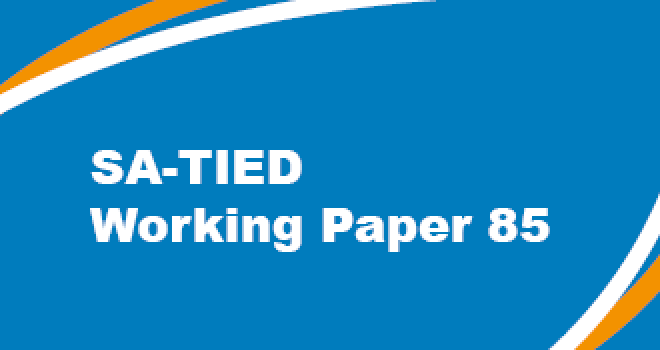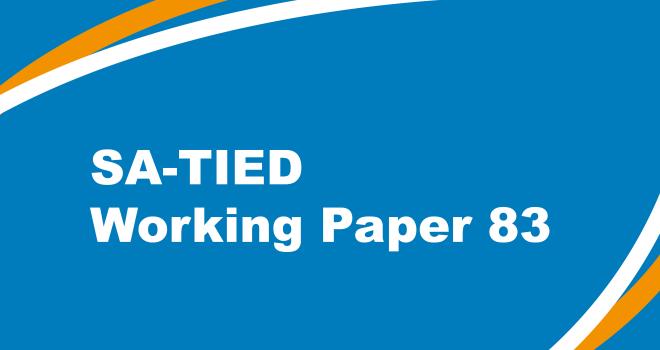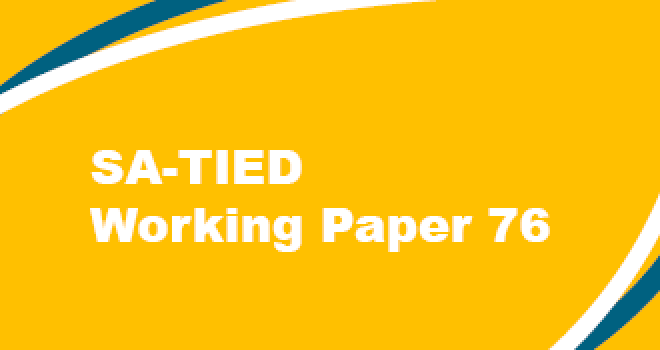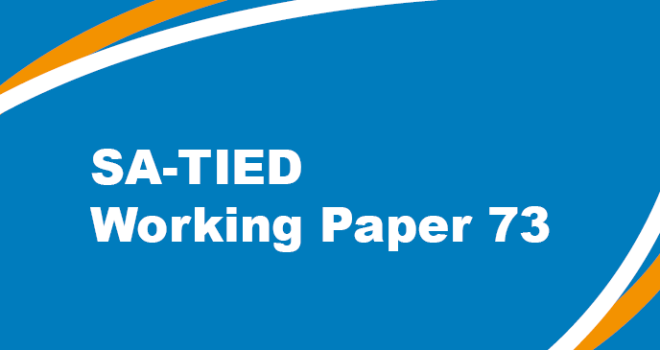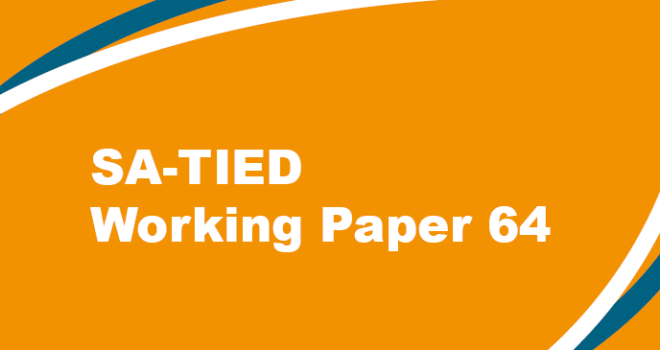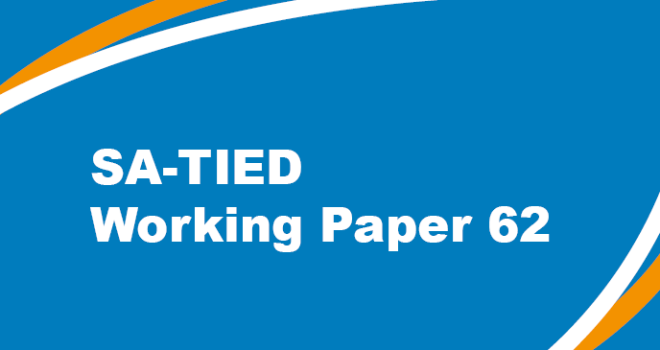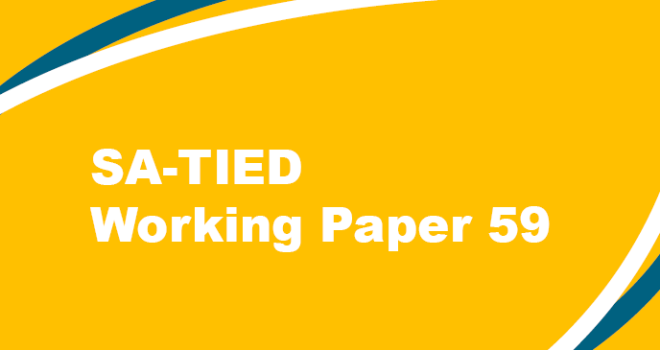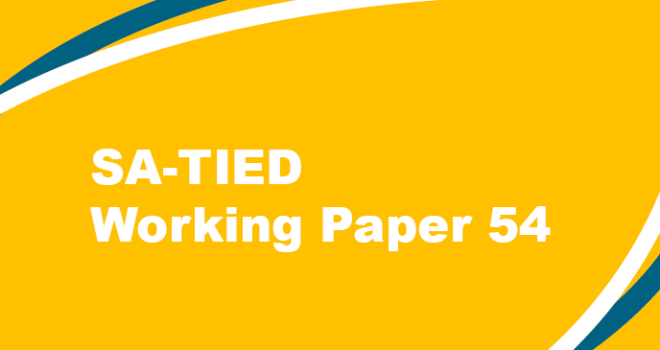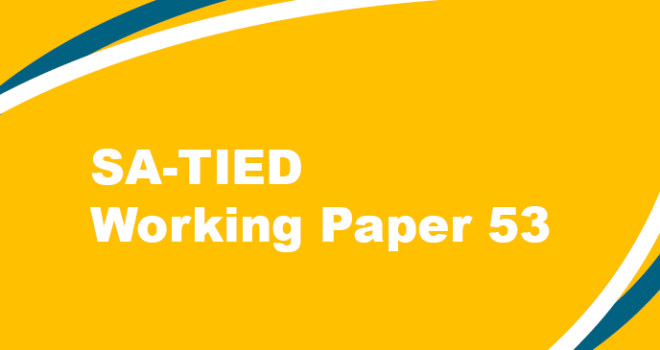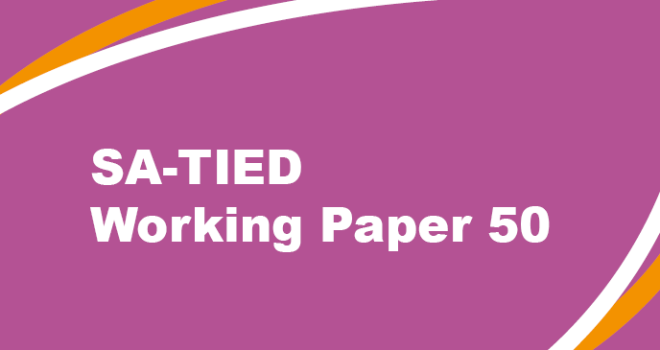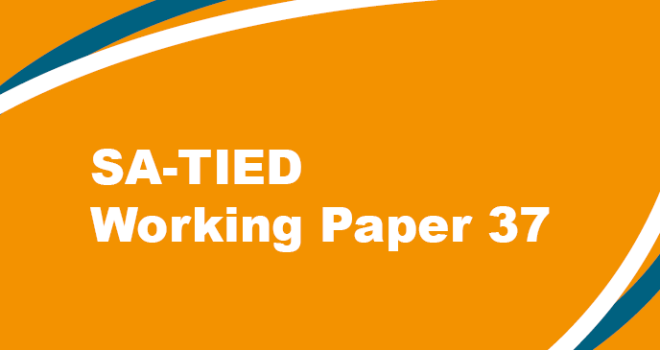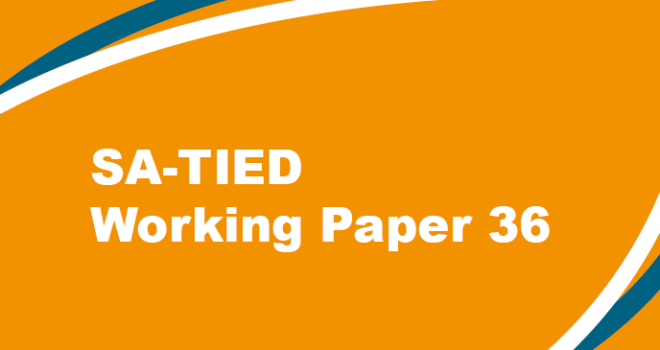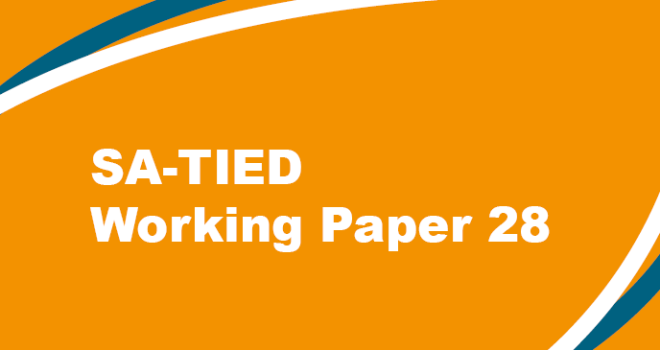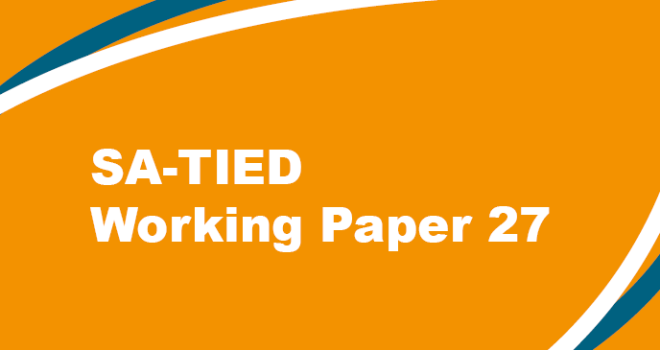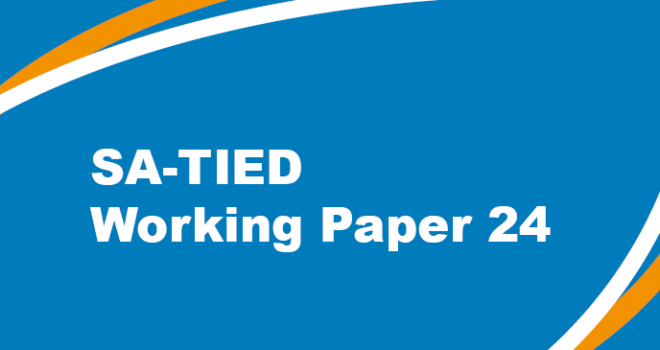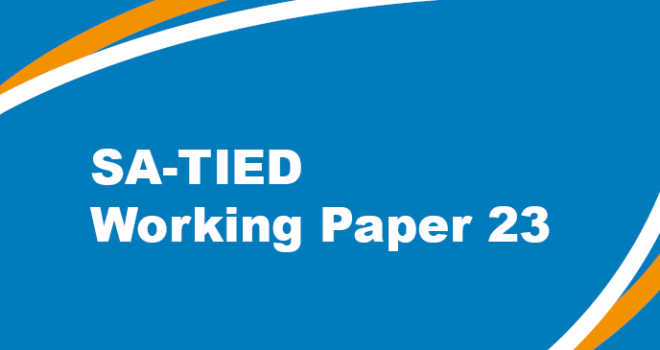Data
Introduction
The National Treasury Secure Data Facility (NT-SDF), established through the collaboration between the United Nations University World Institute for Development Economics Research (UNU-WIDER), the South African Revenue Service (SARS) and National Treasury (NT), provides researchers with partially anonymised tax data for research. South Africa is one of only a few countries globally to grant access to this type of data for research purposes. This is a unique opportunity as access to national administrative data for researchers outside of senior officials is rarely granted. The administrative data plays a central part in the SA-TIED programme and aims to inform policy formulation.
Data access
Located on the 20th floor of the NT building in Pretoria, the NT-SDF has a number of terminals available to researchers. Researchers with successful applications in response to calls for proposals, listed under the opportunities tab, can secure access the data to conduct their research.
Apart from responding to the request for proposals, researchers can send proposals (max five pages) to the National Treasury (ntsdf@treasury.gov.za) to request access to the data. Proposals should outline the research question, the relevant literature, the proposed methodology, exact data requirements, and the anticipated time needed in the data lab. In addition, the researcher should ensure that their proposal illustrates their familiarity with papers on the tax data relevant to their proposal. This will ensure they understand the data limitations and place their proposed contribution into the tax data literature.
Data description
The de-identified tax data available at the NT-SDF includes our core datasets such as the Corporate Income Tax (CIT), Employee Income Payroll certificates (IRP5), Personal Income Tax (PIT), Customs, and Value Added Tax (VAT) datasets. These datasets are linked to specific SARS forms that generate the data. Below is a comprehensive list of the datasets which are available.
- Common Reporting Standards
- Corporate Income Tax panel (IT14 and ITR14 forms)
- Customs (SAD500 and CD1 forms)
- Employer Reconciliation Declaration (EMP 501 form)
- Employee Income Payroll certificates (IRP5 form)
- Excise Duties
- Individual income tax return (ITR12 form)
- Labour Brokers (IRP30A form)
- Monthly Employer Declaration (EMP201 form)
- SARS Treasury Matched Firm (STMF) Panel (merged CIT, Employee Income Payroll certificates, Customs and VAT)
- SARS Treasury Matched Individual Panel (merged Employee Income Payroll certificates and Individual income tax return)
- Value-Added Tax (VAT201 form)
- Meta and dummy data for selected datasets are available on this LINK.
Data Security
The data are de-identified by masking identifying information (e.g., tax reference numbers, PAYE reference numbers). This process ensures that no one granted access to the tax data at the NT-SDF can directly or indirectly identify the companies or individuals described in the data. Additionally, the NT-SDF enhances security by requiring users to sign a non-disclosure agreement (NDA) and take an Oath of Secrecy before accessing the data. Moreover, the NT-SDF enforces strict rules regarding the export of researcher outputs. This document: Output Rules for Researchers contains details on what outputs are permitted to leave the facility and the procedures for requesting export approval.
Research
If you are planning on responding to an SA-TIED call for research proposals, please check the papers at the bottom of this page for completed, current, and ongoing research to avoid the duplication of existing research. Final papers resulting from the analysis of these data will be made available on our research page alongside all other SA-TIED final papers.
Some independent research studies have also been undertaken by staff at the National Treasury. An overview of this research can be accessed here.
Please feel free to send an email to: ntsdf@treasury.gov.za with additional questions regarding the data.

